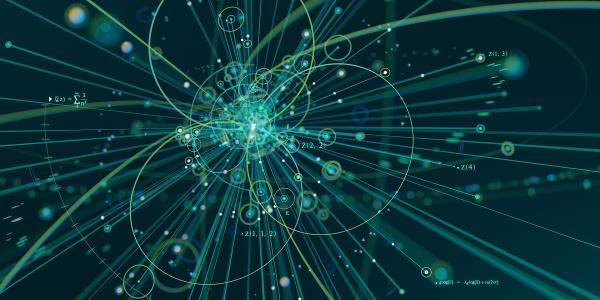The Department of Physics and University College are sponsoring a series of public lectures, to be held at 10 a.m. on Saturday mornings from October 28th through November 18th. These lectures, which are free and open to the public, will be presented by the faculty members of the physics department and are tailored for the general public.
Michael Ogilvie, a professor of physics who oversees the series, explained the ways in which this lecture series attempts to make the subject matter accessible. “We want to share the excitement we find in physics, and we work hard to convey information in a variety of ways so that a background in science isn’t needed,” says Ogilvie. “We find that most people find aspects of the lectures that speak to them: mind-blowing ideas, huge impact on our world, and fascinating stories. Great discoveries in physics often have a fascinating human side to them.”
This notion, one of sharing perhaps a more “human side” to physics discoveries, seems to be a narrative running throughout the subject matter that will be touched on by the event’s speakers. Ogilvie further explored this saying, “Ram Cowsik, the James S. McDonnell Professor of Space Sciences, suggested that we do a series of lectures based on great experiments of modern physics. Scientists often use words like ‘beautiful’ and ‘elegant’ to describe great experiments, as if they were great works of art. We’re hoping to convey a sense of that beauty in our lectures.”
As Ogilvie suggests, the language that scientists use to describe discovery and innovation harkens to some larger, grander beauty. This is a rather expansive, sweeping theme that will be crystallized and interpreted by each of the lecturers, with subject matter ranging from famous experiments to more current research. The first lecture will explain how we discovered that the universe is left-handed, the second how scientists measure tiny forces inside biological cells, the third how light gains energy when it falls, and the final lecture will explore what the rumbling of thunder tells us about the nature of time. This wide range of subject matter not only effectively explores the series’ theme, but it provides something of interest for everyone who attends.
“Physics is a human activity that touches each of us in various ways. The story of physics is ultimately the story of how we understand the universe, and humanity’s role in it,” said Ogilvie. “I hope that these lectures will give participants some sense of the joy physicists find in that understanding.” These lectures, then, inspire an exploration of physics on a broad, interdisciplinary scale—a unique and striking perspective that’s not to be missed.
Due to construction, the lectures will take place in Lab Sciences 300. The Lab Sciences building is located directly across from the Millbrook parking garage, which offers free parking on Saturday for visitors.





